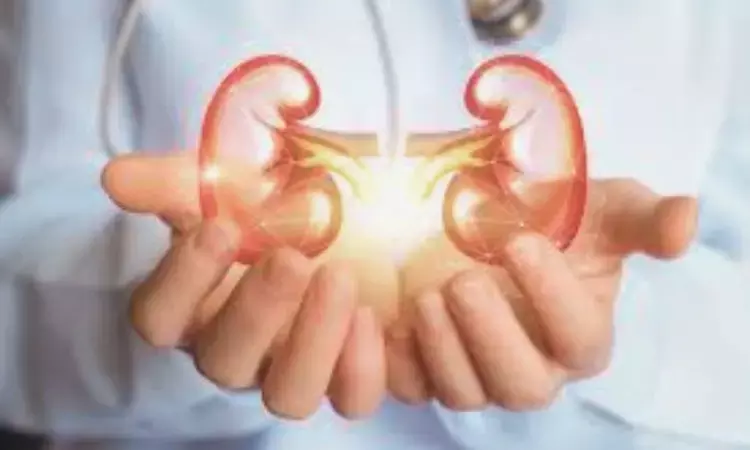- Home
- Medical news & Guidelines
- Anesthesiology
- Cardiology and CTVS
- Critical Care
- Dentistry
- Dermatology
- Diabetes and Endocrinology
- ENT
- Gastroenterology
- Medicine
- Nephrology
- Neurology
- Obstretics-Gynaecology
- Oncology
- Ophthalmology
- Orthopaedics
- Pediatrics-Neonatology
- Psychiatry
- Pulmonology
- Radiology
- Surgery
- Urology
- Laboratory Medicine
- Diet
- Nursing
- Paramedical
- Physiotherapy
- Health news
- Fact Check
- Bone Health Fact Check
- Brain Health Fact Check
- Cancer Related Fact Check
- Child Care Fact Check
- Dental and oral health fact check
- Diabetes and metabolic health fact check
- Diet and Nutrition Fact Check
- Eye and ENT Care Fact Check
- Fitness fact check
- Gut health fact check
- Heart health fact check
- Kidney health fact check
- Medical education fact check
- Men's health fact check
- Respiratory fact check
- Skin and hair care fact check
- Vaccine and Immunization fact check
- Women's health fact check
- AYUSH
- State News
- Andaman and Nicobar Islands
- Andhra Pradesh
- Arunachal Pradesh
- Assam
- Bihar
- Chandigarh
- Chattisgarh
- Dadra and Nagar Haveli
- Daman and Diu
- Delhi
- Goa
- Gujarat
- Haryana
- Himachal Pradesh
- Jammu & Kashmir
- Jharkhand
- Karnataka
- Kerala
- Ladakh
- Lakshadweep
- Madhya Pradesh
- Maharashtra
- Manipur
- Meghalaya
- Mizoram
- Nagaland
- Odisha
- Puducherry
- Punjab
- Rajasthan
- Sikkim
- Tamil Nadu
- Telangana
- Tripura
- Uttar Pradesh
- Uttrakhand
- West Bengal
- Medical Education
- Industry
Donor kidneys with toxoplasma do not increase risks for transplant patients, suggests research

A new study from UC Davis Health could help to increase the supply of donor kidneys.
Researchers have found that transplant patients who receive kidneys infected with the parasite toxoplasma have virtually the same outcomes as those who receive toxoplasma-negative organs.
Despite longstanding concerns, those who received kidneys from toxoplasma antibody positive donors (TPDs) had almost identical mortality and rejection rates. The research was published in Transplant International.
“Organs from donors who were positive for toxoplasma did just as well as organs from those who were negative, both for survival of the patients and survival of the kidneys,” said Lavjay Butani, chief of pediatric nephrology. He coauthored the paper with Daniel Tancredi, professor of pediatrics. “This is quite encouraging.”
Inconsistency in approach
Toxoplasma is a ubiquitous parasite that infects many people but generally causes no harm. However, people who are immunosuppressed, such as kidney recipients, could be at higher risk. Toxoplasmosis can be transmitted through the transplanted kidney and reactivate a latent infection in the kidney recipient.
Still, there has been tremendous inconsistency in how transplant centers treat TPD kidneys, with some accepting them and others rejecting.
“We conducted this study because, about a year ago, there was a positive donor and the team did not want to use that kidney for one of our pediatric patients, so we didn’t accept it,” Butani said. “But we realized, we just didn’t have the data to know if that was the correct decision.”
What the study showed
The study analyzed 51,000 transplants from the Organ Procurement and Transplantation Network database. Of those, 4,300 were TPD. They found rejection and graft failure was 5% for both TPD and non-TPD kidneys. Other measures were similarly aligned. In other words, the TPD kidneys posed no additional risk.
The authors believe it is safe to transplant TPD kidneys-but do recommend additional monitoring. However, transplant patients routinely receive Bactrim, a two-antibiotic combination that is effective against toxoplasma and this may already be mitigating their risk. Most patients receive Bactrim for a year, but that could be extended for TPD cases.
The authors hope this work will help transplant centers unify their TPD policies. UC Davis Health is currently writing new protocols for pediatric transplants. Ultimately, this new understanding could help patients get the organs they desperately need.
“In transplants, kidneys are the greatest need,” Butani said. “Because of increased diabetes, high blood pressure and other conditions, the wait list just gets progressively longer. We hope these findings will help increase the supply of donor kidneys.”
Reference:
Lavjay Butani, Daniel Tancredi, Outcomes of Kidney Transplants From Toxoplasma-Positive Donors: An Organ Procurement and Transplant Network Database Analysis, Transplant International, https://doi.org/10.3389/ti.2024.13203.
Dr Kartikeya Kohli is an Internal Medicine Consultant at Sitaram Bhartia Hospital in Delhi with super speciality training in Nephrology. He has worked with various eminent hospitals like Indraprastha Apollo Hospital, Sir Gangaram Hospital. He holds an MBBS from Kasturba Medical College Manipal, DNB Internal Medicine, Post Graduate Diploma in Clinical Research and Business Development, Fellow DNB Nephrology, MRCP and ECFMG Certification. He has been closely associated with India Medical Association South Delhi Branch and Delhi Medical Association and has been organising continuing medical education programs on their behalf from time to time. Further he has been contributing medical articles for their newsletters as well. He is also associated with electronic media and TV for conduction and presentation of health programs. He has been associated with Medical Dialogues for last 3 years and contributing articles on regular basis.


